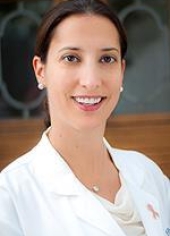Overdiagnosis versus Overtreatment in Breast Imaging
The following article was written by Elissa Price, M.D., a specialist in Breast Imaging at UCSF Medical Center at Mount Zion.
Earlier this week, an important review was published in the major medical journal, The Lancet, entitled The Benefits and Harms of Breast Cancer Screening: An Independent Review. The article reports the findings of a British Panel of experts commissioned to assess the evidence and reach conclusions on the controversy surrounding breast cancer screening with mammography.
The Panel’s review emphasized the most rigorous scientific evidence available – that from randomized controlled trials. Their analysis showed the screening mammography results in a 20 percent relative risk reduction – that is, it decreases a woman’s chance of dying of breast cancer by 20 percent. It concluded, as we have long believed at UCSF, that screening confers significant benefit and should continue. MAMMOGRAPHY SAVES LIVES.
The study also accentuated the topic of ‘overdiagnosis’. Overdiagnosis is the identification of a cancer that would not have become apparent in a woman’s lifespan had it not been for the screening test. The Panel found that for the women who are invited to begin screening, just over 1% would have an overdiagnosed cancer in the next 20 years. While this may be true, a major concern in my view is the repeated use of the term ‘overdiagnosis’ as if it were synonymous with the term ‘overtreatment’. The review states “the consequence of overdiagnosis is that women have their cancer treated by surgery, and in many cases radiotherapy and medication”. But the surgery, radiotherapy and medication mentioned are a consequence of the patient’s treatment (or as the review seems to believe, the patient’s overtreatment), not overdiagnosis. Diagnosing a cancer is not the same as treating it. The identification of a cancer, however small, provides a woman and her doctor with information. Information they need to consider and act on in the context of that individual woman. Much work is needed to help us become more discerning with our cancer treatment options – a ‘one-size-fits-all’ approach is suboptimal.
The Panel emphasizes the need to inform women of the risks and benefits of screening. However, in focus groups conducted by the Panel, many women felt that accepting the offer to screen is worthwhile – a feeling we share in the Breast Imaging section at UCSF.
Learn more about breast imaging at UCSF here.

